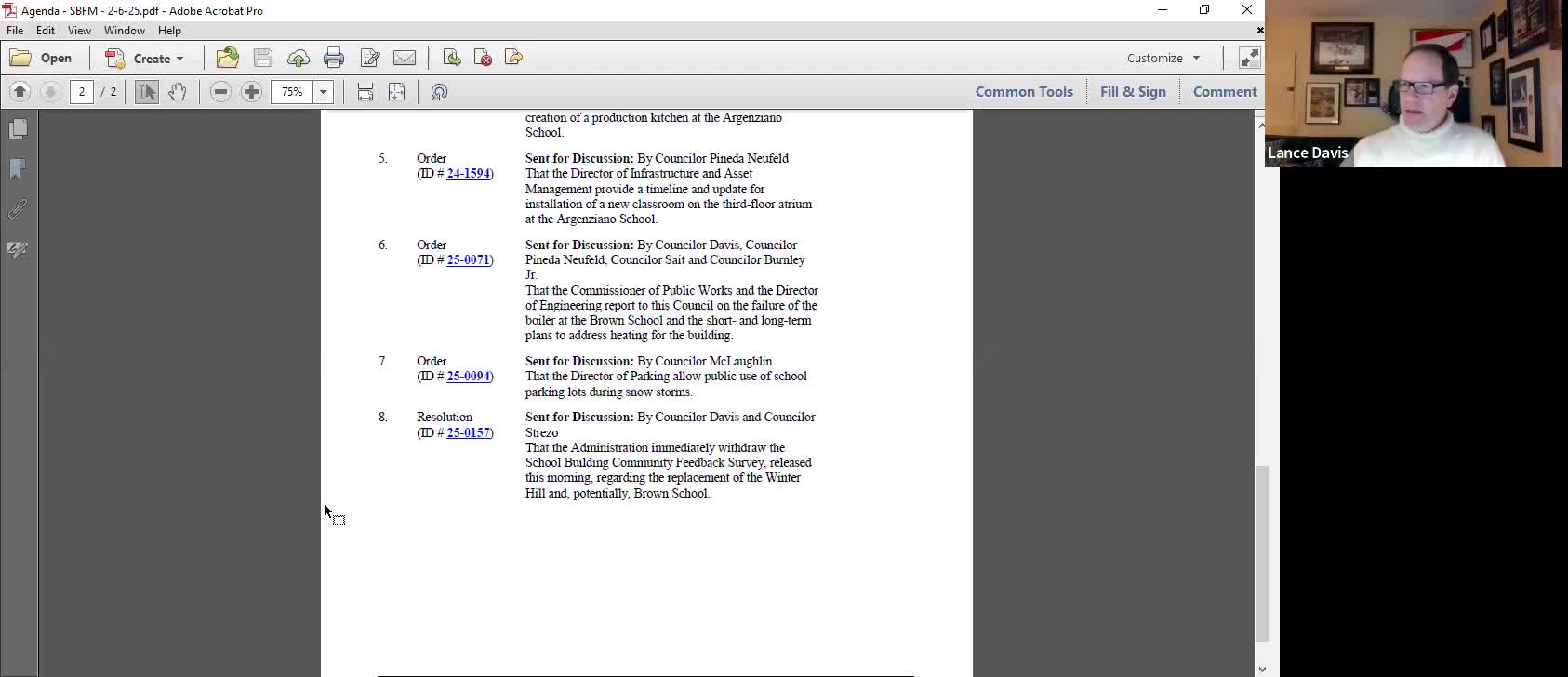Somerville councilors, CAG members call to pull and rewrite school survey amid bias concerns
Get AI-powered insights, summaries, and transcripts
Subscribe
Summary
City committee members, School Committee representatives and Community Advisory Group members told the joint Somerville committee that a community feedback survey about replacing Winter Hill and Brown schools appears biased; administration says promotion paused and staff will review survey data and proposed revisions.
Somerville City Council Committee Chair Lance Davis urged the administration to withdraw the community feedback survey released the same day, saying the questions “seemed to be focused specifically on deriving negative data for the possibility of retaining the two neighborhood schools.” The request came during a joint meeting of the council’s school buildings, facilities and maintenance committee and the school committee subcommittee.
Committee members and Community Advisory Group (CAG) participants said the survey’s wording and response options created a positive framing for a larger, combined school and did not give respondents a neutral way to register opposition. That, they said, undermined public trust in a process that will lead to a Proposition 2½ debt-exclusion vote to finance any new building.
The argument for reworking the survey centered on fairness and measurement: critics said the survey lacked clear demographic identifiers, used response categories that pushed respondents toward agreement, and contained questions that respondents interpreted as specifically about the Brown School. Several CAG members and ward representatives said they had been consulted on topics but not shown the final question wording before release.
Anna Gardsman, director of SummerStat, the city’s data team, said she wrote the survey with input from “many staff from both the school and city side, as well as with input from the CAG and a test group.” Gardsman told the committee the city pulled active promotion of the survey after receiving feedback but initially left the questionnaire live because “by that point, a lot of responses had already come in” and staff did not want to create a bad user experience by removing it immediately. She said back-end analysis would determine whether early responses could be reported with caveats or whether the dataset should be discarded and the survey relaunched.
Councilors, school officials and CAG members pressed for a firmer approach. Councilor Lance Davis said the dataset “is contaminated” and urged the administration to stop collecting further responses and to work with the CAG on revised wording. Councilor Strezzo, a CAG representative, and Ryan Williams, president of the districtwide PTA and a Brown School parent representative on the CAG, said the survey’s design and phrasing left many community members skeptical of the process. Dr. Elizabeth Phillips, a researcher and CAG participant, identified technical flaws she said would likely reduce variation in responses and recommended either redesigning the instrument or contracting a professional poll for voter-representative results.
Administration officials told the committee the broader outreach plan includes multiple engagement methods beyond the online survey, such as focus groups, events, and targeted outreach to groups less likely to attend meetings. Director Raich (Infrastructure and Asset Management) and Gardsman said some topics included in the survey came from earlier CAG discussions and that certain suggested questions will be deferred to a second-phase survey once specific building variants and designs are developed. Gardsman said some demographic flags were added after CAG comments, including a flag for parents of children with special needs.
No formal vote was taken on the item. Committee members unanimously urged the administration to work with the CAG, to be transparent about which responses will be retained or discarded and to provide a revised schedule and draft questions before relaunching any survey.
Committee chair Davis and other members also said the episode has depleted trust in the public process and urged a slower, more collaborative approach. As part of the meeting’s broader updates, Director Raich told members that Somerville has advanced through the Massachusetts School Building Authority (MSBA) eligibility phase and is entering the “forming the project team” stage of the MSBA process.
